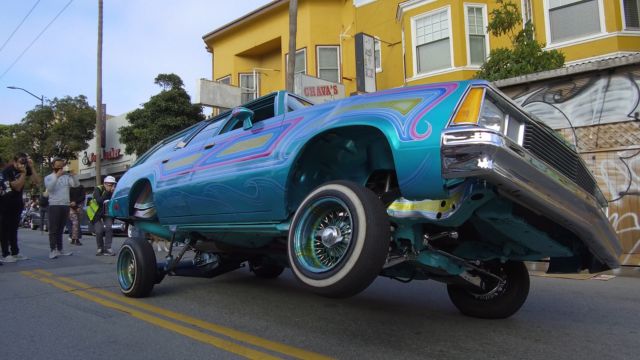Governor Gavin Newsom has signed a bill lifting limitations on customized lowrider automobiles, which are frequently adorned with intricate hydraulic systems and bright external designs. The law would allow the vehicles to travel California’s streets once more.
California Assembly member David Alvarez, who sponsored the legislation, told Fox News Digital this week, “I would like to thank the Governor for signing AB 436 into law on behalf of the thousands of advocates who supported this culturally significant legislation, the low rider communities, and car clubs from all over California.
The law will allow the historical legacies of cruising to continue for the current generation and many more.” In California, “Cruising is Not a Crime,” as agreed upon by Governor Newsom!”
In October, Newsom signed AB 436, which prohibits towns and communities from banning cars from cruising on public streets. California will be subject to the law starting on January 1, 2024.
According to Smithsonian Magazine, the origins of lowriders and cruising culture can be traced back to 1940s California, when World War II veterans who had undergone mechanical training returned home.
Mexican-American veterans in California bought Chevy cars and started customizing them to drive slowly and low to the ground while adorning them with vibrant colors as the “hot rod” craze spread across the nation, according to the site.
The automobiles began to represent Latino culture in California, and by the 1970s, lowrider car clubs had gained popularity.

Nonetheless, lowriders were outlawed in many Californian cities in the 1980s after it was claimed that the vehicles were connected to drug-related offenses, gang activity, and violence.
While some communities, including Los Angeles and Fresno, maintained their bans on lowriders and cruising, others, like Sacramento and San Jose, relaxed them in recent years.
The rules prohibiting cruising, according to some lowrider fans and supporters, are an example of discrimination against the Latino community.
In February, Alvarez presented his plan to end the ban on cars, promoting lowrider culture as a way of life that emphasizes friendship, family, and culture.
According to Fox 5 San Diego, Alvarez stated at the time, “I think it’s appropriate now that we make sure that people can freely and normally go about their lives enjoying these old cars, without any possibility of being involved in illegal activity as it currently states.”
The initiative was introduced in response to a group of National City, California, residents who love lowriding and wanted the city to overturn its own 1992 cruising legislation.
Following Newsom’s signature in October, Jovita Arellano, president of the United Lowrider Coalition in National City, remarked, “Our efforts were validated that at the state capitol, they understand the lowrider culture,” as reported by the San Diego Union-Tribune.
A few other organizations also opposed the bill, stating that it could compromise public safety and prevent local governments from enacting their laws governing lowriders.
The Peace Officers Research Association of California, according to its president, told Fox News Digital that the organization strongly believes that local governments should make the majority of policy decisions that affect specific areas, which is why they oppose the bill’s passing.
We urge local leaders to collaborate with their communities and police forces to customize solutions to the unique requirements and conditions of their neighborhoods.
As a result, policies won’t be constrained by laws imposed by the government, according to Brian R. Marvel, president of the Peace Officers Research Association of California, who spoke with Fox News Digital.
The bill’s potential impact on public safety was also voiced by the California Contract Cities Association, which represents more than 80 California cities that contract out for municipal services.
“[Cruising] can lead to issues with congestion and traffic management, which in turn provide significant logistical hurdles for cities and the local organizations that oversee them.
Moreover, cruising can result in potentially risky street takeovers,” the group warned earlier this year in opposition to the plan.
Lowrider automobile aficionados have already congregated in celebration, even though the law doesn’t go into force until next month. This was seen in National City this month.
